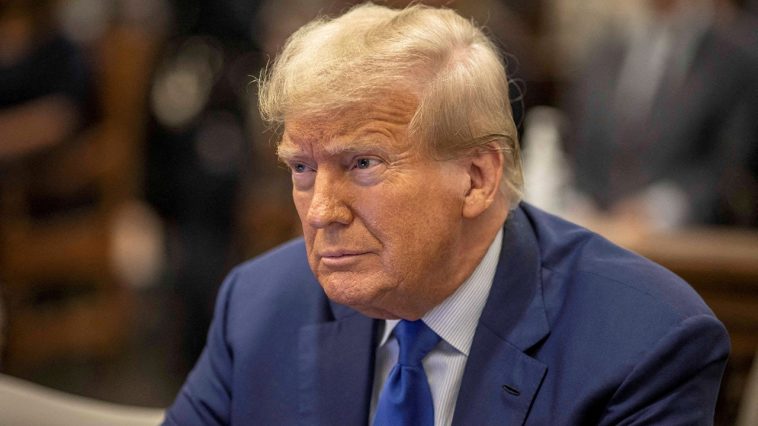In a recent development, a federal judge has ruled against former President Donald Trump’s appeal to adjourn several civil litigations filed in connection to the tumultuous events that took place at the U.S. Capitol on January 6, 2021, while his related criminal trial is unfolding in Manhattan. D.C. District Judge Amit Mehta, appointed by Obama, deemed it unnecessary to suspend the proceedings that were set into motion by numerous members of the Congress as well as the police officials guarding the Capitol on the fateful day, even as Trump’s federal criminal lawsuit guided by Special Counsel Jack Smith is underway.
The defense team for the former President maintained that such lawsuits could adversely affect his defense strategy in the active criminal trial. Nevertheless, Judge Mehta summarily dismissed this contention in his decision made public on a recent Thursday afternoon.
Judge Mehta’s ruling emphasized that while the two cases do revolve around Trump’s conduct ahead of and during the events of the January 6, 2021, the significance of this factual correlation is blown out of proportion in the current context of these cases.
Furthermore, Trump’s legal representatives cited the ongoing Supreme Court case that revolves around the former president’s assertions of immunity from prosecution in his criminal trial. They argued that the outcome of these discussions could potentially affect Judge Mehta’s ruling on Trump’s immunity claims against what he defines as ‘official acts’ underscored in the civil lawsuits.
However, Judge Mehta responded by highlighting that there was no necessity to wait for the Supreme Court’s verdict. He reasoned that his court is unlikely to make any determination about immunity before the Supreme Court’s current term ends. Therefore, if the Supreme Court’s ruling on criminal immunity has any bearing on the outcome here, it can be incorporated effortlessly.
Trump, who was indicted by Smith last year, is contending with four grave charges—obstruction and a conspiracy to defraud the United States among others. The prosecution has described a pattern aimed to maintain power post his electoral loss to the current President, Joe Biden.
In response to the charges, Trump has pleaded not guilty and categorically denied any misconduct. The debate regarding the former president’s immunity revolves around the issue of whether he can face criminal charges for his alleged efforts to overrule the 2020 election verdict.
The ultimate decision of the court will not only affect Trump’s trial in Washington, D.C., overseen by U.S. District Judge Tanya Chutkan initially scheduled for March 4 but later postponed, but will also impact the possible progression of his trials in Florida and Georgia, as reported by the SCOTUS blog.
According to the indictment, Trump allegedly instigated ‘wide-ranging mistrust … resulting from pervasive and destabilizing falsehoods related to election fraud.’ Moreover, he is accused of taking part in three illegal conspiracies that aimed to undermine ‘a fundamental aspect of the United States federal governance: the country’s process of aggregating, tabulating and validating the results of the presidential election.’
Judge Chutkan denied Trump’s appeal to dismiss the charges in December. Following this, Smith approached the Supreme Court for their views on Trump’s claim to immunity without waiting for the U.S. Court of Appeals for the District of Columbia Circuit to make a call on Trump’s appeal. However, the Supreme Court rejected Smith’s immediate request on December 22, per the SCOTUS blog.
In his memoir submitted to the Supreme Court, Trump puts forth an argument that the active charges, if allowed to proceed, might render ‘a mortal threat to the independence of the Presidency.’ Trump firmly believes that a president can never be taken to court for his official acts.
Additionally, Trump appeals to another clause in the Constitution, the impeachment judgment clause, which states that an individual who is impeached and convicted can still be indicted, tried, and punished ‘according to Law.’
In conclusion, Trump pleads the justices to dismiss an alternative theory that the court of appeals had utilized—particularly, the concept that a president does not have the right to immunity from criminal prosecution if his actions are allegedly driven by an illegal desire to retain power



